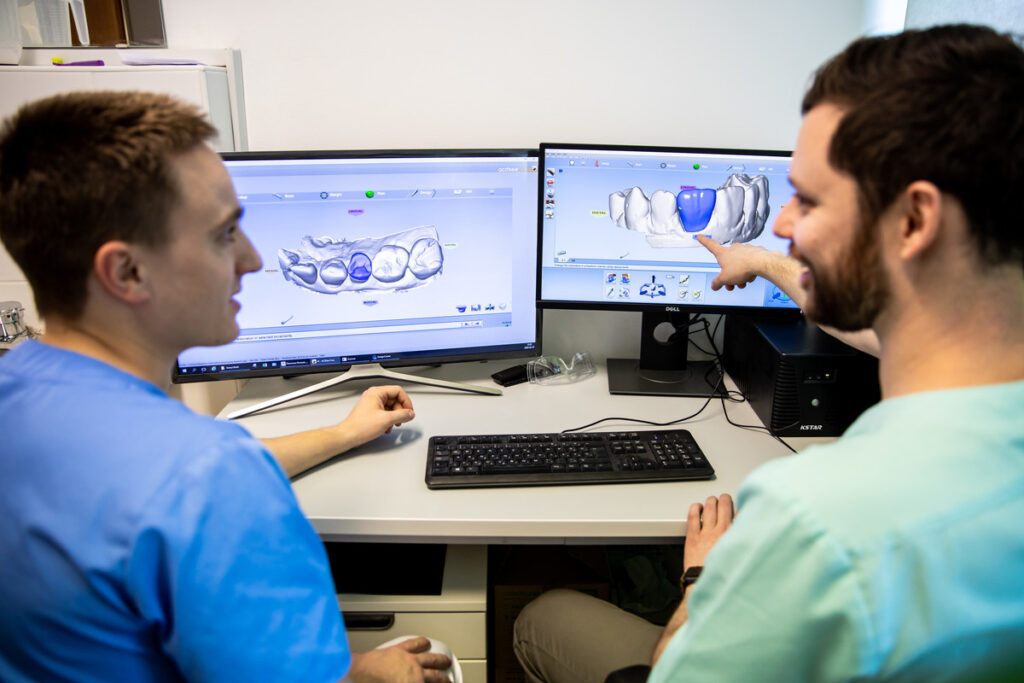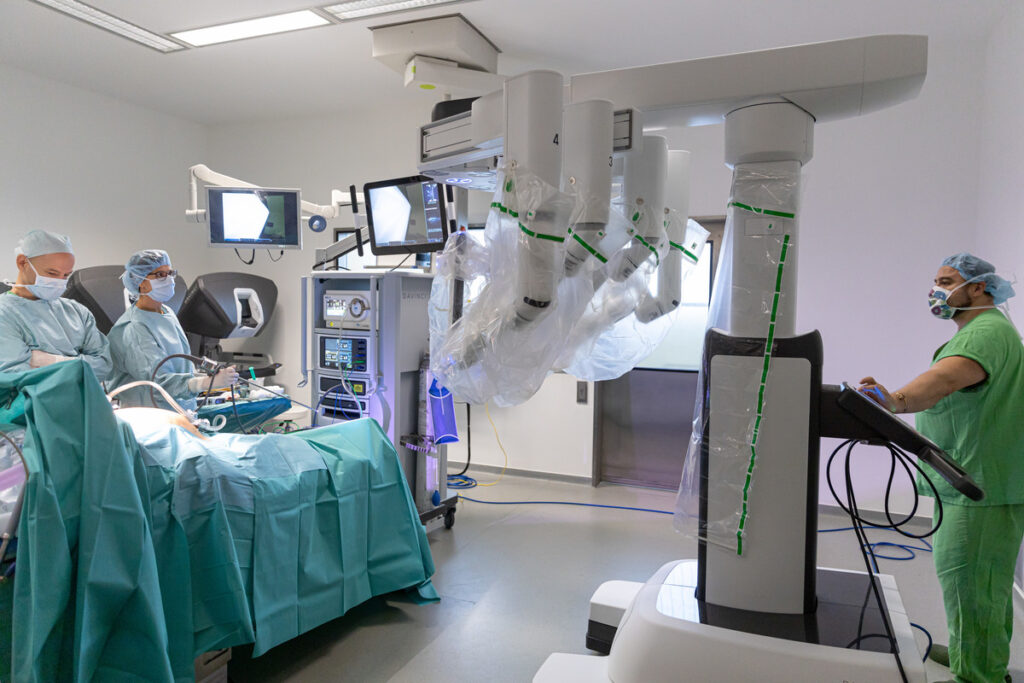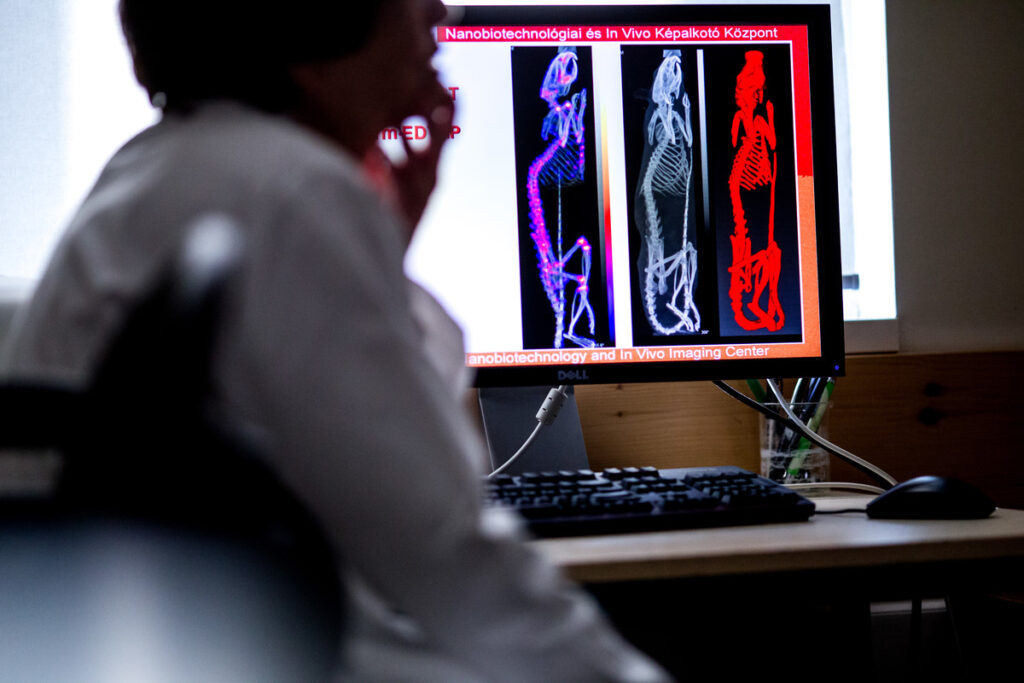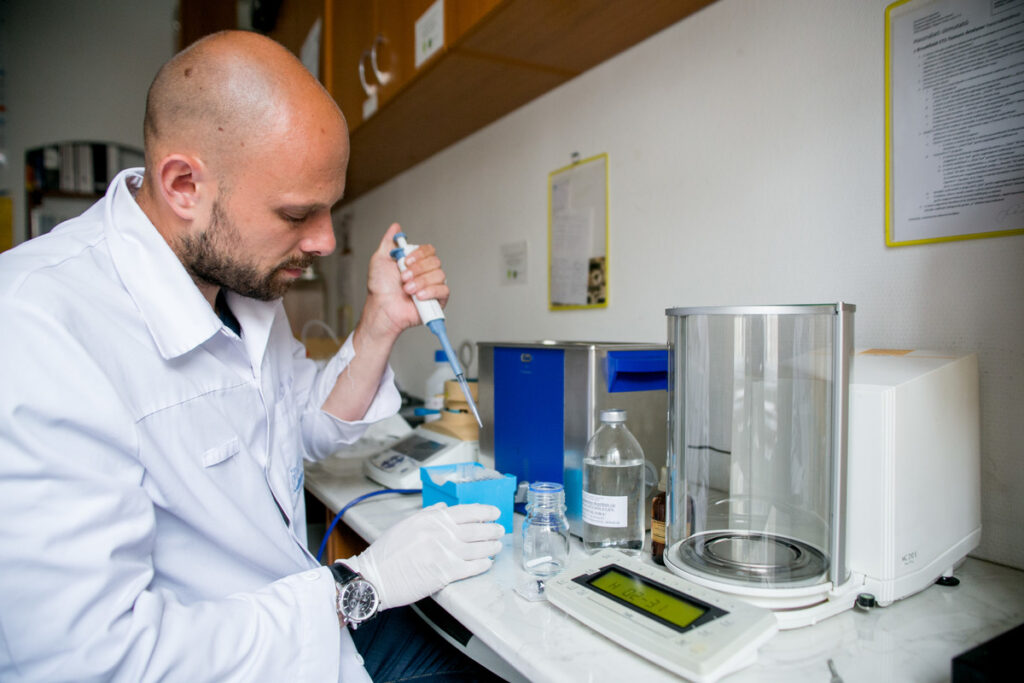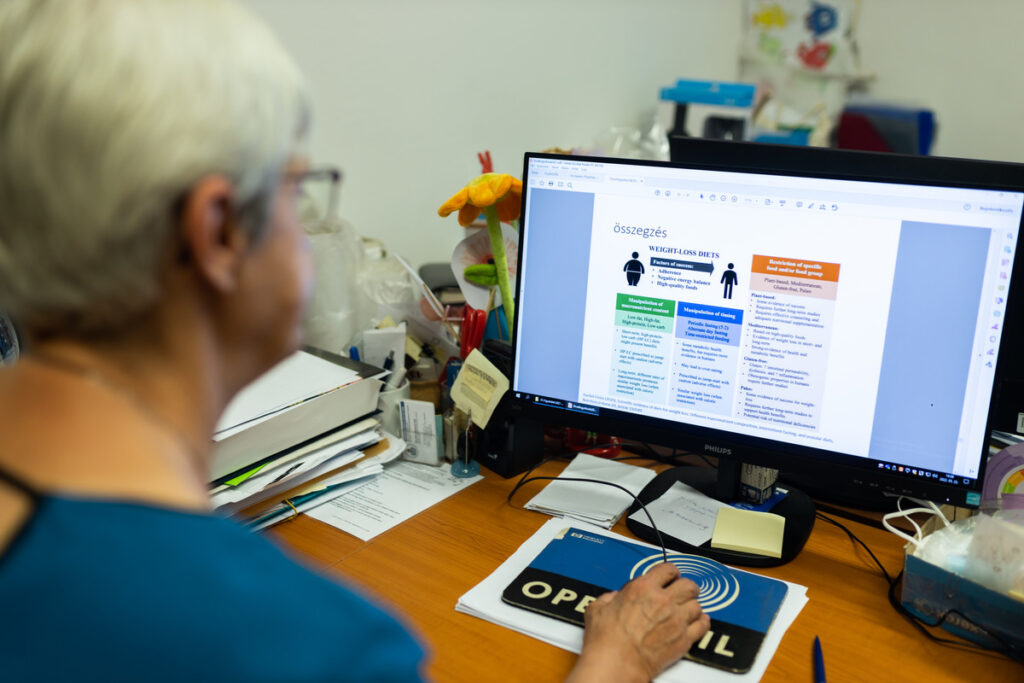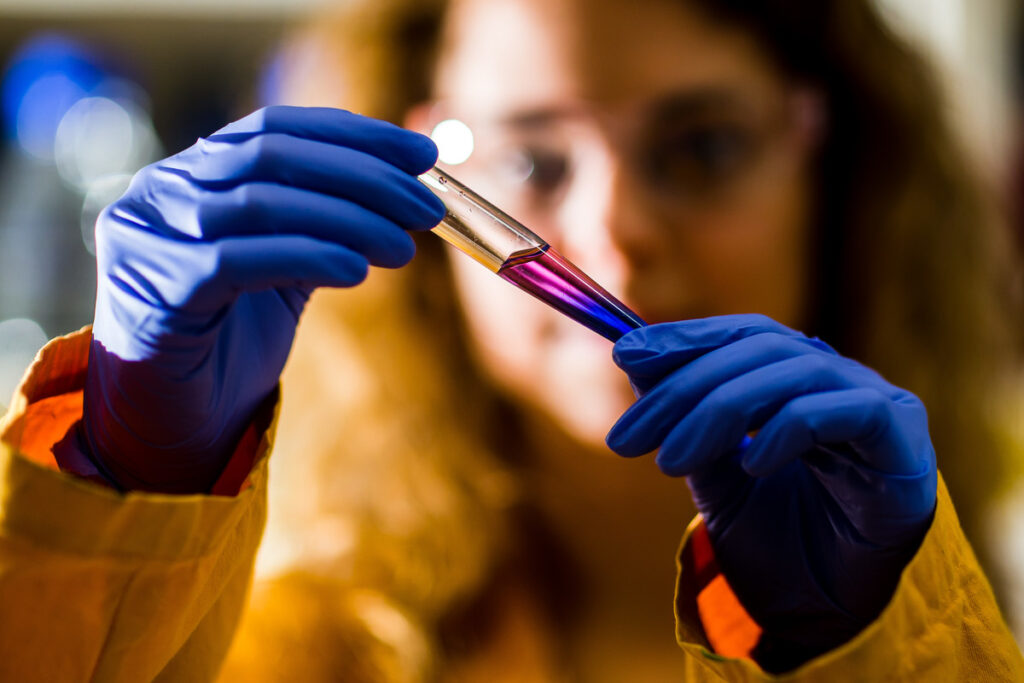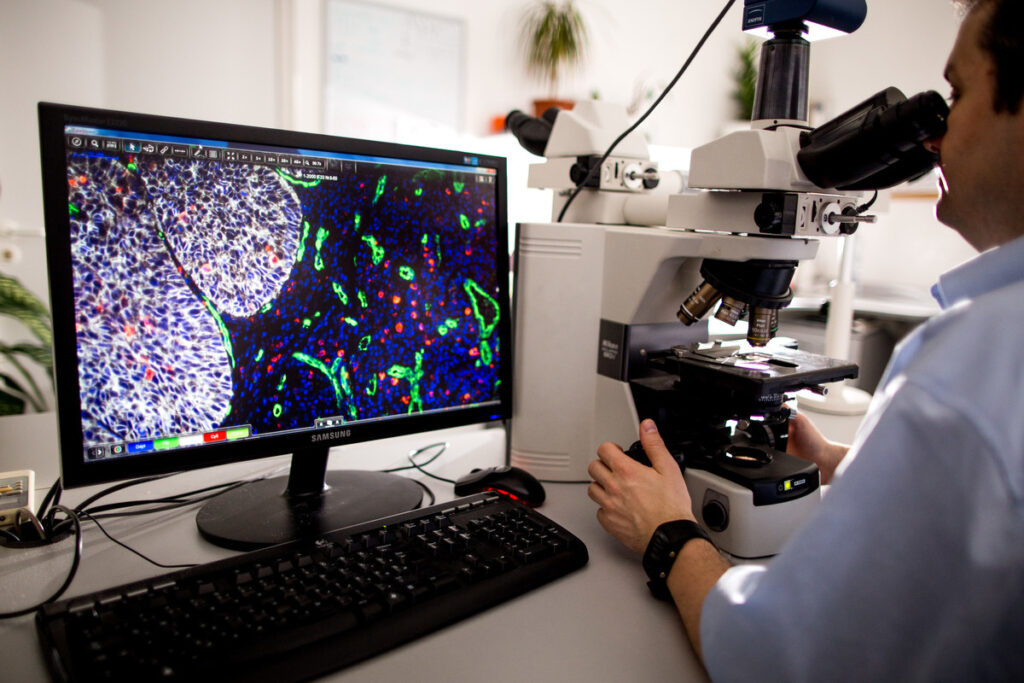The Doctoral College of Semmelweis University (DI) is a leading doctoral-granting institution in Hungary, with 300 active supervisors in 50 programs working with more than 1000 PhD students. The college’s mission is to contribute to the development of science both in Hungary and at an international level by providing training and research of outstanding quality in a wide range of biomedical and health sciences.
Doctoral College
Established: 2001
President: Dr. Zoltán Benyó
Number of students: 1134
Ratio of international students: 13,5%
Address: 25 Üllői Str., Budapest 1091
Divisions →
Doctoral training is the highest level of higher education, with PhD students selected from among the best graduate students. In 1993, the university took over the right to award academic qualifications, laying the foundations for the development of the freedom of scientific thought. An average of 150-160 PhD degrees are awarded each year, with a degree attainment rate of 60-70 percent, which is exceptionally high by national standards. The aim of the training is to acquire the research competencies needed to carry out research, to form an independent opinion on scientific issues and to participate actively in professional public life. The PhD degree is a prerequisite for career progression in academia (universities and research institutes).
EDUCATION, RESEARCH
Students can choose between several forms of doctoral training. In addition to the traditional 4-semester PhD program, there is an MD-PhD Excellence Program for those who excel in their Students’ Scientific Association (TDK) research. In addition, the possibility of obtaining an individual degree is open to those who meet the requirements for the degree through research done outside the framework of their doctoral studies.
Go to the admission information page →
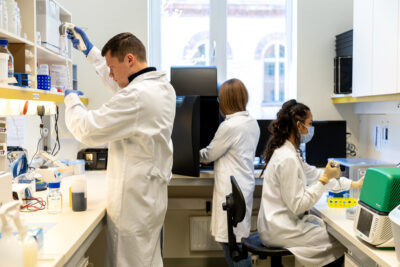 Within each program, doctoral students apply for accredited research topics offered by their supervisors and, after passing the entrance exam, carry out their research under their supervision. The high quality of the training is guaranteed by the outstanding research, development, and innovation activities of Semmelweis University. Every year, our institution produces 500-600 publications in foreign languages that appear in high-impact journals, which results in 5-10 patents per year. Publications are cited 2500-3000 times a year in the international literature.
Within each program, doctoral students apply for accredited research topics offered by their supervisors and, after passing the entrance exam, carry out their research under their supervision. The high quality of the training is guaranteed by the outstanding research, development, and innovation activities of Semmelweis University. Every year, our institution produces 500-600 publications in foreign languages that appear in high-impact journals, which results in 5-10 patents per year. Publications are cited 2500-3000 times a year in the international literature.
A wide range of grants and services are available for students of the Doctoral College, and there are many opportunities for further study and employment in both research and medicine after obtaining the PhD degree.
The Doctoral College is authorized to award PhD degrees in the following disciplines:
- theoretical medicine,
- clinical medicine,
- pharmaceutical sciences,
- biological sciences,
- sociology,
- health sciences.
SCIENTIFIC EVENTS
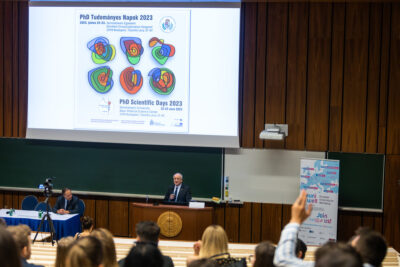 Researchers in the doctoral program are involved in the organization of several international conferences, of which the annual Semmelweis Symposium is of particular importance. The annual PhD Scientific Days forum also hosts an increasing number of international speakers and researchers. In recent years, a close relationship has developed between the Doctoral College of Semmelweis University and the Young Scientist Association (YSA) at the University of Vienna, which has allowed an increasing number of students to attend the annual YSA Symposium in Vienna
Researchers in the doctoral program are involved in the organization of several international conferences, of which the annual Semmelweis Symposium is of particular importance. The annual PhD Scientific Days forum also hosts an increasing number of international speakers and researchers. In recent years, a close relationship has developed between the Doctoral College of Semmelweis University and the Young Scientist Association (YSA) at the University of Vienna, which has allowed an increasing number of students to attend the annual YSA Symposium in Vienna
NATIONAL AND INTERNATIONAL RELATIONS
One of the most significant examples of research collaboration is the Joint Research Organization of the Hungarian Academy of Sciences (MTA) and Semmelweis University, which was formed by 22 research groups, with the university providing much of the infrastructure needed for research. Traditional scientific cooperation has been established between Semmelweis University and the MTA Institute of Experimental Medicine (KOKI), which provides a framework for joint research projects and doctoral programs. Noteworthy is the bioengineering training launched jointly with the Budapest University of Technology and Economics, as well as the research cooperation on the biomechanics of the musculoskeletal system.
Semmelweis University maintains close links with a number of European and non-European institutions, which provides a framework for several research exchange programs. Joint research projects are also conducted with laboratories abroad, enabling students of the Doctoral College to participate in them. In this way, the PhD degree can even be obtained in a joint format, issued by both universities. Doctoral College students can apply several times a year for travel grants that allow them to participate actively in congresses abroad. In addition, the Directorate of International Relations also announces annual travel grants by agreement with partner universities. This also means that visiting researchers and guest students are involved in the research work done here.
OUR HISTORY
Hungary’s Act LXXX of 1993 on Higher Education made it the task of universities to prepare students for academic qualifications and to award doctoral degrees (PhDs), on the basis of which the university had its Doctoral College accredited in the same year. In its present form, the Doctoral College was created in 2001 from the doctoral schools of the university’s legal predecessors. The Doctoral School of Health Sciences was accredited in 2020, so that from September 2020, doctoral training and the obtaining of degrees started in eight doctoral schools, with each representing a different discipline. As of September 1, 2023, the previously accredited schools were merged, and doctoral programs have continued in 11 divisions of the unified Semmelweis University Doctoral College.


